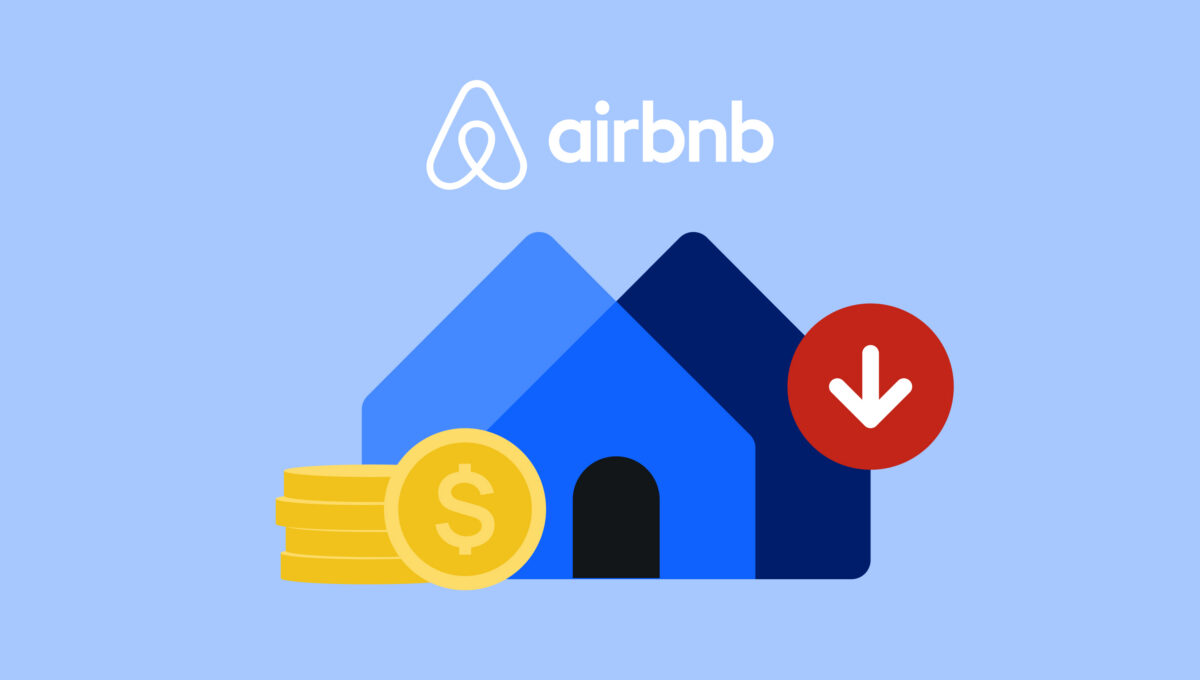
Airbnb host-only fee up to 15.5%: What changes for hosts
Airbnb has recently updated its host-only fee structure, and many vacation rental hosts and property managers are now facing commission rates of up to 15.5%. This change might raise some critical questions: How will it impact your earnings? What does it mean for your pricing strategy? Are there any alternatives for hosts who want to retain more of their revenue?
In this article, we’ll break down what the new Airbnb host-only fee means, why it was introduced, and what steps you can take to adapt.
What is the Airbnb host-only fee?
Traditionally, Airbnb used a split-fee model, where both hosts and guests paid a service fee:
- Hosts: ~3% of the booking subtotal
- Guests: 12–14% on average
With the host-only fee model, Airbnb shifted the entire cost to the host:
- Hosts: now pay between 14% and 16% of the booking subtotal (depending on location, cancellation policy, and listing type)
- Guests: pay no additional Airbnb service fee
With its announcement on August 25, 2025, Airbnb standardized its host-only fees at 15.5% of the booking subtotal (16% in Brazil).
To learn more about the two commission options, please refer to Airbnb's dedicated article at this link.
Is the host-only model becoming mandatory for all hosts?
Airbnb is rolling out the host-only (single-fee) model across the entire platform.
As of August 25, 2025, new hosts connected via channel managers must use the host‑only fee. By October 27, those already using property management software connected via API will be switched automatically.
Even hosts not using software will be required to transition by December 1, 2025. The only current exceptions are specific hotel or hospitality-style listings under contract with Airbnb.
Why did Airbnb introduce this change?
Airbnb’s main goals were to:
- Simplify the guest experience: by removing the guest service fee, the price guests see is the final price.
- Stay competitive with OTAs like Booking.com and Expedia, which have long used a host-only commission model.
- Push for transparency: guests often complained about high service fees, which discouraged bookings.
How does the host-only fee increase affect your revenue?
The most significant consequence for hosts of the host-only fee model, which rises from 15% to 15.5%, is a slight reduction in net income per booking. At first glance, half a percent may seem small, but for hosts managing multiple bookings or high-value stays, this adds up quickly. For example, on a €2,000 monthly revenue, that extra 0.5% represents €10 less in your pocket each month, and the impact grows with larger volumes.
What’s even more critical: Airbnb is in the process of making the host-only fee model mandatory for all hosts, not just those who use a channel manager or property management software. By the end of 2025, nearly every host on Airbnb will be charged a service fee of up to 15.5%, while the guest-facing service fee will disappear.
In short:
- Your net earnings per booking will decrease slightly due to the increased commission.
- You will no longer have the choice to stay on the split-fee model, as Airbnb will apply the host-only model to nearly all listings.
- This shift makes it even more critical for hosts to review their pricing strategy and explore alternatives, such as direct bookings or multi-channel distribution, to protect their margins.
What can hosts do to adapt to Airbnb's new host-only fee?
The increase to 15.5% and the mandatory switch to the host-only model will affect every host’s bottom line. Here are five innovative ways to protect your margins and stay competitive:
1. Adjust your pricing
You may want to consider increasing your nightly rate to offset the higher commission. However, this may make you less competitive compared to other listings or OTAs.
2. Use Dynamic Pricing solutions
Manual price updates are time-consuming and often ineffective. With a Dynamic Pricing tool (like Smoobu’s built-in feature), you can automatically adjust your rates based on demand, seasonality, occupancy, and local events. This helps you maximize revenue without constantly monitoring the market.
3. Encourage direct bookings
By building your own vacation rental website with a booking engine, you can become entirely independent of OTA fees and keep 100% of the booking revenue. Tools like Smoobu’s Website Builder make it easy to set up a professional site with no coding skills.
4. Diversify your distribution
A good solution can be to rely on more booking portals. Connect your listings to other channels (Booking.com, Expedia, niche platforms) using a channel manager. This way, you spread the risk and avoid dependency on one OTA’s commission model.
5. Optimize your guest experience
Higher fees make margins tighter, so guest retention becomes even more valuable. Excellent communication, streamlined check-in, and positive reviews can help you secure repeat bookings.
Conclusion
The Airbnb host-only fee, which can be as high as 15.5%, represents a significant shift in how vacation rental hosts earn revenue. While it simplifies pricing for guests, it might put extra pressure on hosts’ margins.
The good news? With the right tools, such as channel management, direct booking websites, and guest communication automation, you can maintain control of your business and avoid losing significant revenue to commissions.
If you’re an Airbnb host looking to protect your income, now is the time to explore a more dynamic and multi-channel management.
Leave a comment